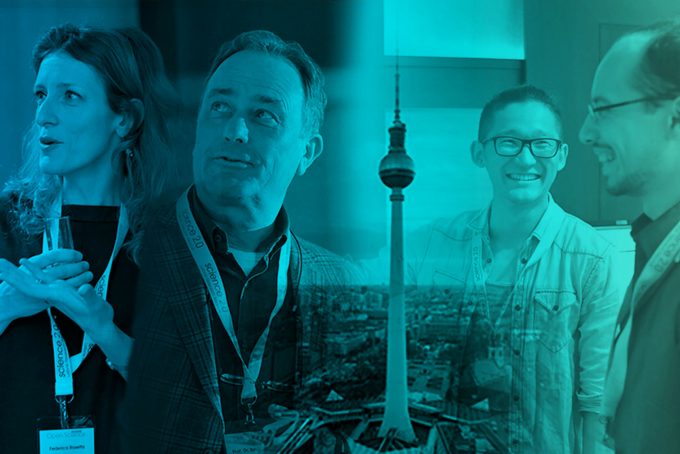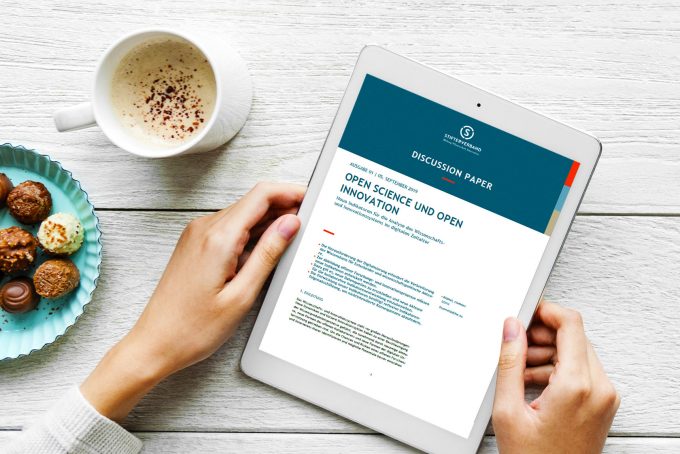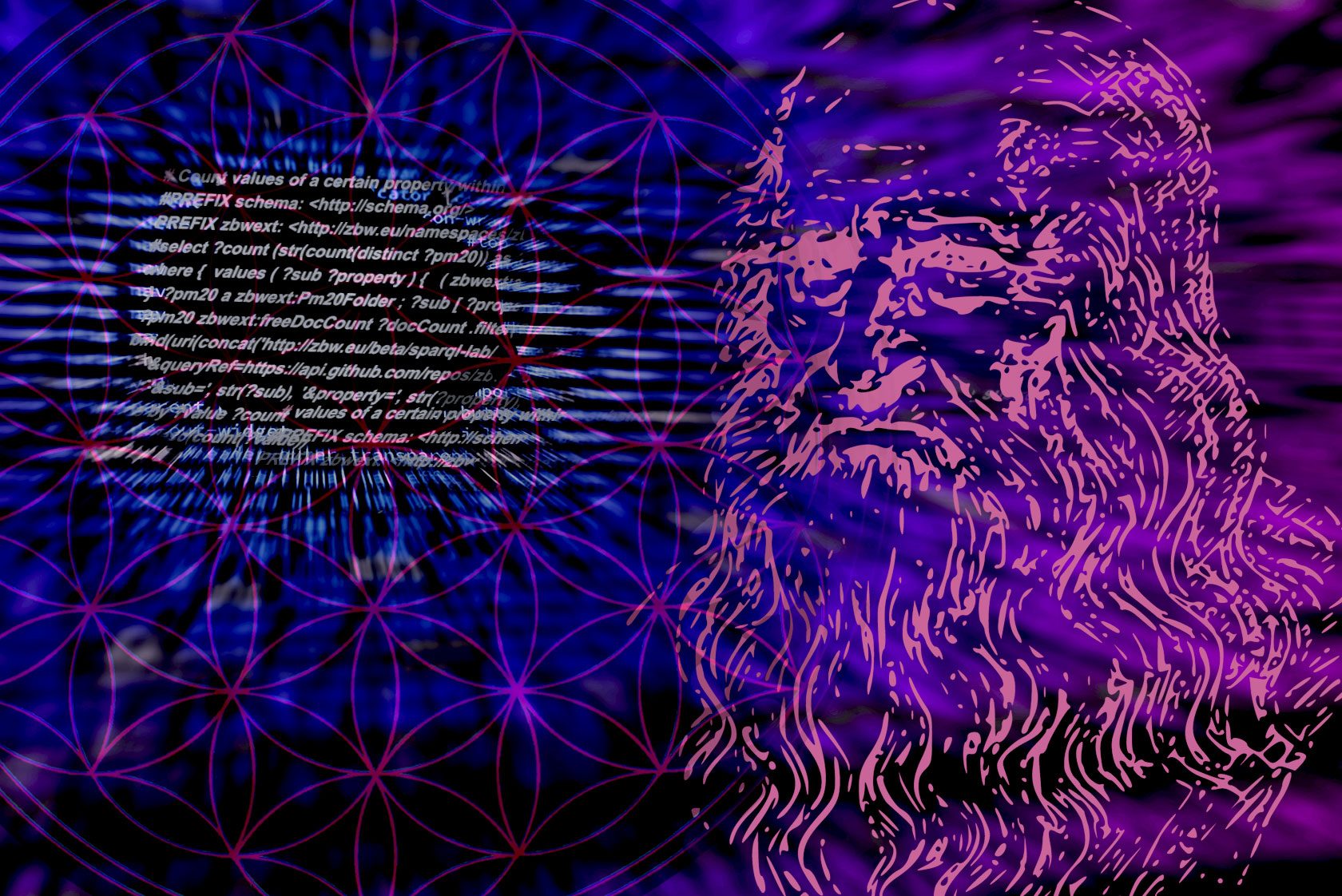
Coding da Vinci 2018: Hackathon on Open Data from Research and Cultural Heritage Institutions
Coding da Vinci Rhein-Main started 2018 with a kick-off event. For the first time, the ZBW is taking part in the hackathon on open data from cultural heritage and research institutions. We give a short report about the kick-off and the open data made available by the ZBW.
by Birgit Fingerle und Joachim Neubert
With a kick-off event on 27 and 28 October at the Johannes Gutenberg University in Mainz, the sixth edition of the Hackathon „Coding da Vinci“ was launched. This time, the hackathon is being hosted by cultural institutions from the Rhine-Main region.
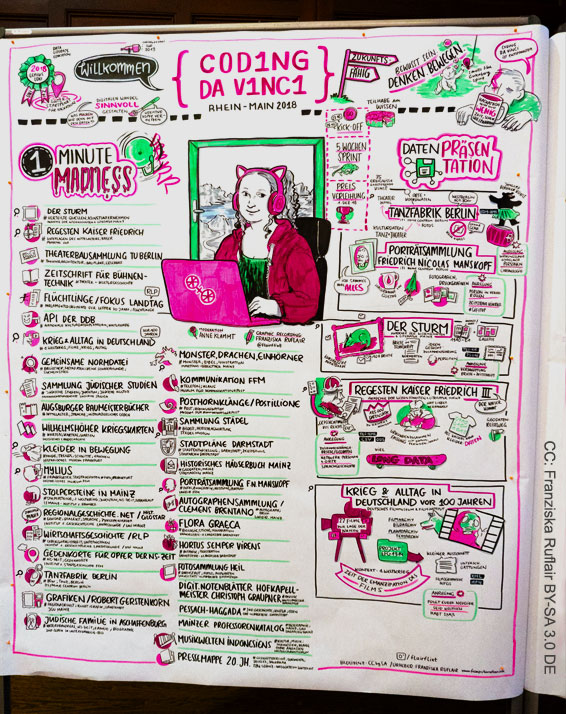
Over a period of five weeks, people from all over Germany interested in culture, technology, design and games are called upon to creatively build something new from open data from cultural heritage and research institutions. The collections of digital audio and video recordings, images and metadata will be used to create applications that can be used in culture and society.
Hackathons as part of the globally growing OpenGLAM movement
Coding da Vinci – The Culture Hackathon is a joint project of the German Digital Library, the digiS, the Open Knowledge Foundation Germany and Wikimedia Germany.
In contrast to classical hackathons (link in German) the Coding da Vinci hackathons extend over the period of several weeks. Coding da Vinci hackathons have been held since 2014. To date, more than 400 people have already taken part and implemented around 70 digital applications. These included mobile apps, interactive installations, augmented reality applications and hardware prototypes. The hackathons are seen as part of the globally growing OpenGLAM movement, which advocates free access to and open reuse of digitized cultural assets.
Kick-off opens sprint phase
At the kick-off in the Old Refectory of the Johannes Gutenberg University in Mainz, 23 data providers from museums, archives and libraries presented their open data sets. They ranged from films on the subject of war and everyday life in Germany (1914 – 1918) to texts on the economic history of companies in Rhineland-Palatinate or high-resolution all-round photographs of dresses from various eras to post horn sounds from the collections of the Frankfurt Communication Museum.
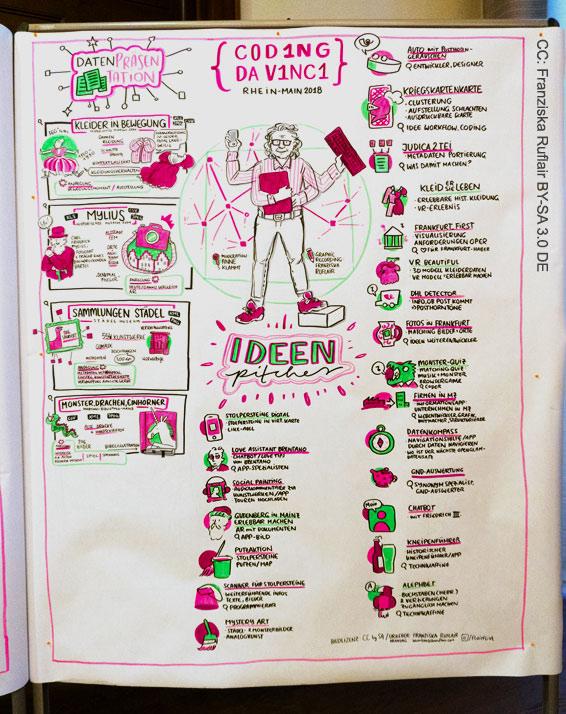
Ideas were formulated by the more than 100 participants and 22 suggestions were presented in project pitches. Groups came together to discuss individual ideas further and to hack first prototypes. The generous timeframe offered plenty of opportunity for direct contact and also for the exchange between the data providers. Thus, overlaps in the databases could be explored and possibilities for cooperation identified.
The teams that were formed during the kick-off now develop their ideas into executable prototypes within a few weeks. But even for those who could not come to Mainz, joining is still possible and encouraged. The sprint phase lasts five weeks. The most exciting applications will be awarded in various categories at an awards ceremony at the Landesmuseum Mainz on 1 December.
Research data of the press archives under open license
For the first time, the ZBW is one of the data providers of the current hackathon. It participates with the biographical and company archives of the “20th Century Press Archives”.
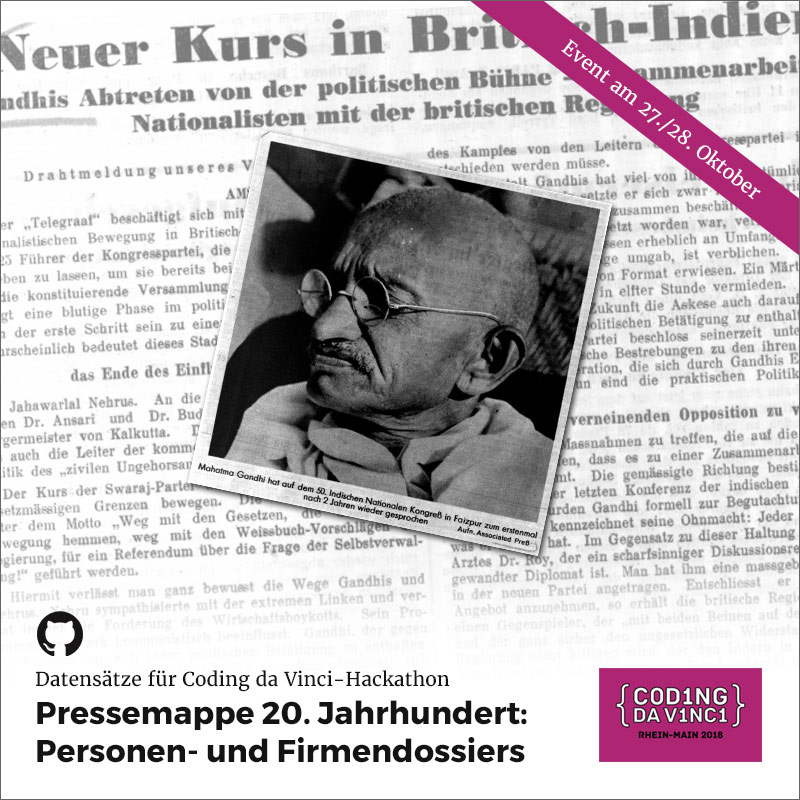
In their press clipping archives in Kiel and Hamburg, the ZBW and its predecessor institutions have collected material on individuals, companies/institutions, products and topics from over 1,500 publications and compiled it into topic-related dossiers over a period of almost one hundred years. The documents that were published until 1948, containing approximately 5.7 million pages, were digitized in a project funded by the German Research Foundation (DFG). They were gradually indexed with corresponding metadata and made available to the public via the application 20th Century Press Archives (PM20). DFG viewer links lead directly to the dossier view – for example of the person Mahatma Gandhi or the firm Hamburg-Bremer Afrika Line .
For those interested in contemporary history and culture, the ZBW press clipping archives offer a wide-ranging insight into contemporary perception of the 20th century. At the same time, they form unique research databases for social and economic historians, for media studies and corporate history. The ZBW, which is first and foremost committed to supporting current economic research, therefore opens up these databases for the use in different communities. As a first step, it has licensed the entire metadata under CC0 in order to enable open and free subsequent use. The publication of the data in documented and re-usable formats – such as JSON-LD here – is also part of the process of opening it to different communities. A data comparison which was performed ad-hoc with colleagues from the Specialist Information Service Jewish Studies brought surprisingly many common hits with the portal JudaicaLink, which are to be used to enrich the data sets there.
The ZBW data set for „Coding da Vinci“ can be downloaded and quoted via DOI. It is accompanied by a Github Repository for code examples and feedback. The data is accessed through controlled vocabularies and offers numerous links to the GND and Wikidata/Wikipedia – and thus the best prerequisites for mashups with other holdings, especially those from the Linked Data Cloud.
View Comments
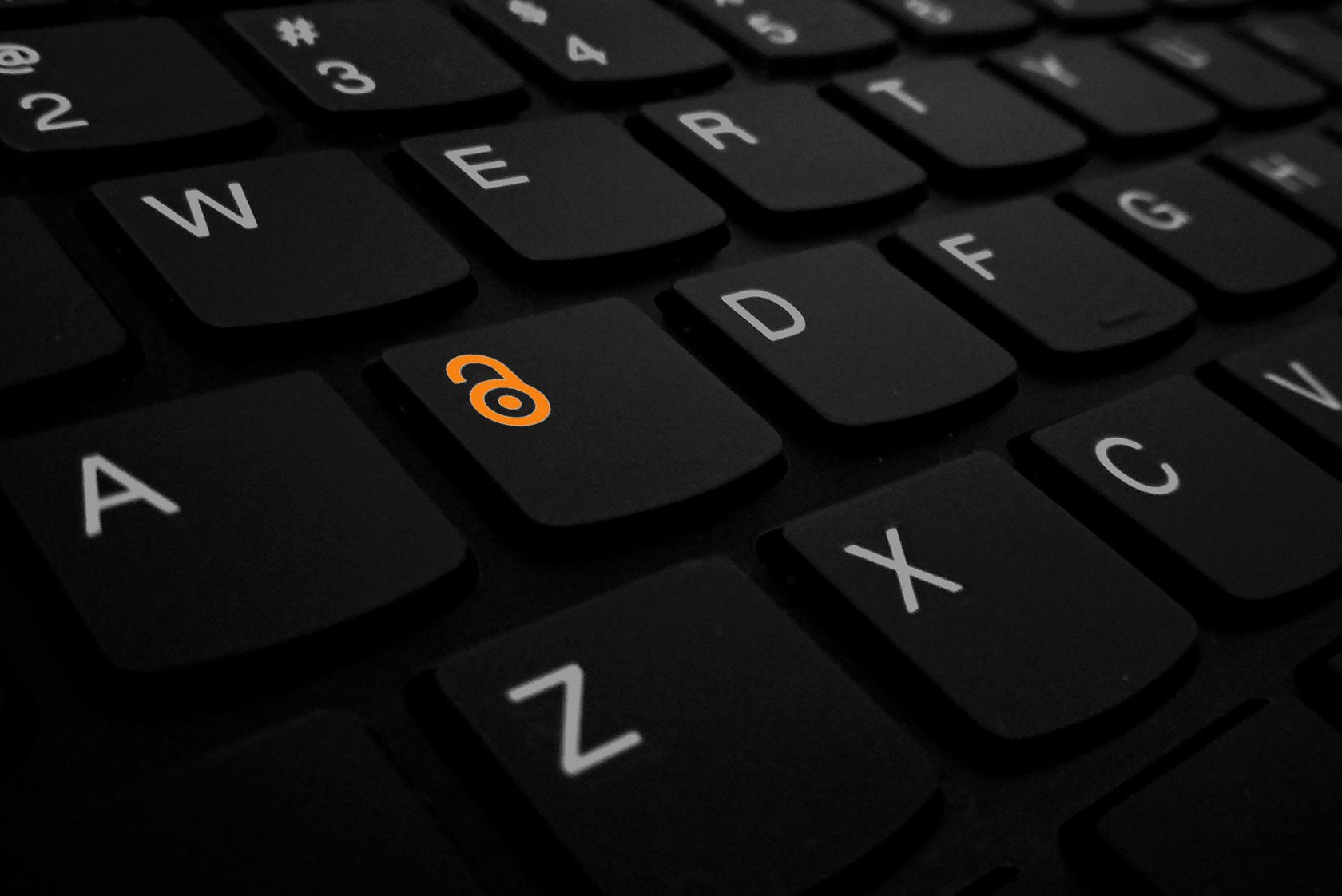
Open Access Days 2018 – Part II: How Does Open Access Develop in Individual Disciplines and Projects?
The Open Access Days 2018 dealt with topics such as the implementation of open access...

